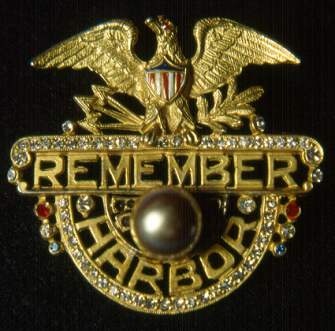Book Review
The Greatest Generation’s Troubled Homecoming from World War Two
By Thomas Childers, Houghton Mifflin Harcourt, 352 pages, $26
 “Peace, it’s a problem.” That is how writer Maureen Daly opened up her article in a May 1947 issue of Ladies Home Journal on the troubled lives of World War II veterans. Daly’s story, and basket loads of others that had been appearing in newspapers and magazines since the mid-war years, documented how hundreds of thousands of servicemen had returned home to divorces, medical problems, exploding family expenses, and shortages in everything from jobs and housing to reliable automobiles and decent white dress shirts. Then there were the articles and radio commentaries about the behavior of returning veterans, men whom many believed drank away their military separation pay and benefits and spent too much time idling on park benches. Also widely discussed was the change: what had happened to the fellows who went away to war young, fresh, and confident and returned nervous, bitter, or plagued by nightmares.
“Peace, it’s a problem.” That is how writer Maureen Daly opened up her article in a May 1947 issue of Ladies Home Journal on the troubled lives of World War II veterans. Daly’s story, and basket loads of others that had been appearing in newspapers and magazines since the mid-war years, documented how hundreds of thousands of servicemen had returned home to divorces, medical problems, exploding family expenses, and shortages in everything from jobs and housing to reliable automobiles and decent white dress shirts. Then there were the articles and radio commentaries about the behavior of returning veterans, men whom many believed drank away their military separation pay and benefits and spent too much time idling on park benches. Also widely discussed was the change: what had happened to the fellows who went away to war young, fresh, and confident and returned nervous, bitter, or plagued by nightmares.
The problems, the shortages, and the nightmares are all part of historian Thomas Childers’ well-written work Soldier from the War Returning. It is a book that confronts the fallacious assumption that almost all the boys came home from the war with no fuss and got about the business of living respectable, productive lives. It also discusses post-traumatic stress disorder—psychological damage associated with veterans of Vietnam and later wars, but not yet properly identified by the 1940s and ’50s.
This business of the troubles of returning veterans makes for a broad book topic, but Childers wisely breaks his book into digestible parts, using the lives of three US Army veterans to illustrate the experience of an entire generation of young men. Willis Allen came from a family of itinerant tunnelers and miners who hailed from the mountain regions of the South. Mike Gold grew up in New Jersey, a gifted high school graduate with no opportunity to go on to college. Tom Childers, the author’s father and the son of a Chattanooga fireman, was a young newlywed with limited job prospects.
Allen became a combat infantryman, survived the invasion of Salerno, Italy, and fought up the Italian peninsula until the day a heavy Nazi artillery round fell on his squad, sheering off both his legs and killing all his comrades. Gold was good at mathematics and trained as an air corps navigator. He was shot down over Europe and spent many seasons as a prisoner of war. Childers was drafted, served out the war in ground support on airfields in Britain, rarely faced personal danger, but had to do a lot of explaining when he got home: why had he committed adultery while he was away, and why had he survived the war while his wife’s well-behaved and beloved brother was lost in combat?
These three men were all members of what has been dubbed “the Greatest Generation.” They were among the young Americans who supposedly endured the Great Depression and military service in World War II without complaint and then went on to create the most robust middle class the nation had ever seen. All of them benefited from government programs set up to support veterans. At Federal expense Allen went through extensive physical rehabilitation and was trained to be an accountant. Gold went through college on the GI Bill and became a physician. Childers was set up in an electrical contracting business with guaranteed low-cost US loans.
But that was as much as government could do for them personally. They had to negotiate the nation’s rebuilding along with everyone else. Their personal lives were their own business, and it was up to their wives and children to endure an existence shaped by their husbands’ and fathers’ war-related traumas and frailties.
Readers of a certain age who remember their own fathers as young veterans will relate to the tales of the Baby Boom, housing problems, long-running GI benefits, and the camaraderie among neighbors and relatives who served in the military during World War II. The book provides a fascinating look back at early attempts at pop social commentary and analysis—at articles that ask “Will your boy come home a killer?” or that try to allude tastefully to problems in the bedroom when a husband first comes home from the war. It is also a brave work of value. Childers reveals unpleasant things about family and friends, not for shock value, but only to offer up reliable, incontrovertible evidence of the problems veterans faced. This is a solid human-interest book. But it is not soap opera.
—John Stanchak
Philadelphia, Pennsylvania




FOLLOW US »
